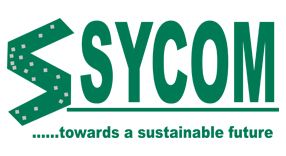Content
The business incurs the expense of stocking inventory and may also have sales for the month to match with the expense. If the business makes sales on credit, however, payment may not be received in the same accounting period. In fact, credit purchases are one of the many contributing factors that make business operations so complex. With the accrual accounting method, income and expenses are recorded when they’re billed and earned, regardless of when the money is actually received.

Under the cash method, you should claim that business expense deduction on your 2012 tax return because that is the year you paid for the supplies. In addition, special rules apply for the accounting of inventory. If the answer is yes, you’ll want to choose the accrual-basis method of accounting. This is a likely scenario for Software-as-a-Service or other subscription-based business models, where revenue is collected monthly or annually – resulting in zero A/R. At the same time, there are accrued salaries and A/P at the end of the year. If your business is a C corporation, or you earn more than $25 million in gross revenue annually, you must use accrual accounting.
Cash and Accrual Accounting Systems
Internal Revenue Service dictates that it must use the accrual method of accounting. Whichever type of accounting method a business decides to use, it must be consistent every year. If you desire to learn more about this accounting method and its uses, be sure to check out the article by Investopedia on Accrual Accounting Method. The accrual transaction is recorded for April 4th, and not July 16th since Client B received the bill in April. Records income items when they are earned and records deductions when expenses are incurred. Company A sends a bill to the client for creating a business plan.
- File Form 3115, Application for Change in Accounting Method, to receive approval for the change.
- The best way to keep track of your business is to use accounting software, particularly for businesses that are looking to use accrual accounting.
- Choosing an accounting method for your business is made simple by the rules set in place by the IRS.
- And while it’s true that accrual accounting requires more work, technology can do most of the heavy lifting for you.
- This article is for business owners considering whether to use a cash or accrual accounting system.
Understand how accrual accounting impacts your business and when… Accrual accounting maintains that credits and debits exist even if a monetary transaction has not been made.
Why You Need Continuing Professional Education as a CPA
Consistency is essential since the swapping of accounting methods can potentially create loopholes that a company can use to manipulate its revenue and eventually supplant tax burdens. The cash accounting method is simple, easy to implement, and appropriate for smaller businesses, while the accrual accounting method is generally complex and expensive. This amount or reserve is estimated based on the risk of the client and is a percentage of the revenue received or anticipated to be received from the client. The key takeaway here is that companies’ income and expenses must be recorded using the same accounting method. If the company uses inventory to account for income then an Accrual Method shall be used. However, it requires more expertise and time than cash-basis accounting , it is more difficult to understand, and it can complicate the tax preparation process.
- Internal Revenue Service dictates that it must use the accrual method of accounting.
- With cash accounting, you’ll record that revenue on August 15, the day you actually received payment.
- If your business makes less than $25 million in annual sales and does not sell merchandise directly to consumers, the cash basis method might be the best choice for you.
- In addition to the tips discussed above, here are a few more that can affect your business.
- If it’s tax season, when CPAs are the busiest, you may even run the risk of not being able to file on time.
- Under this method, you record income when you make a sale and expenses when you incur them.
Keep that in mind when choosing an accounting method for your business. A chart of accounts lists all business transaction and is used to compile statements, review progress and locate transactions. These charts have to be updated often to include various business transactions. https://www.bookstime.com/ To prepare the system for the next accounting, temporary accounts that are measure periodically, including the income, expense and withdrawal accounts, are closed. The balance sheet accounts also called the permanent accounts, remain open for the next accounting cycle.
Open a business checking account and a business savings account
Accrual accounting is based on the idea of matching revenueswith expenses. In business, many times these occur simultaneously, but the cash transaction is not always how to choose an accounting method for business completed immediately. Businesses with inventory are almost always required to use the accrual accounting method and are a great example to illustrate how it works.
If everything is jumbled into one account, come tax time, you or your CPA will have to go through your bank records to figure out which expenses are related to your business. While accrual accounting is indispensable in modern businesses, it does have its shortcomings, such as a steep learning curve and greater complexity that can be a burden for small business owners. If you use accrual accounting, accounting software solutions and professional accountants are a necessity. Accrual accounting is where a business records revenue or expenses when a transaction occurs using the double-entry accounting method. Under the accrual method, transactions are recorded when they are incurred rather than awaiting payment. This means a purchase order is recorded as revenue even though the funds are not received immediately. The same goes for expenses in that they are recorded even though no payment has been made.





